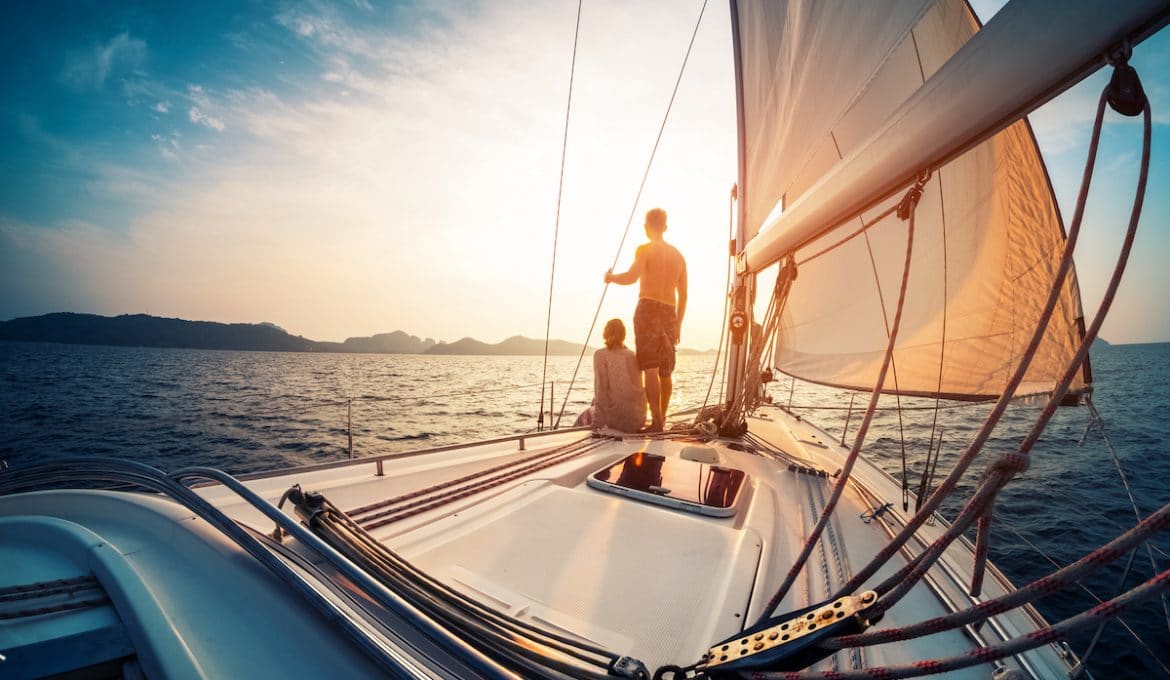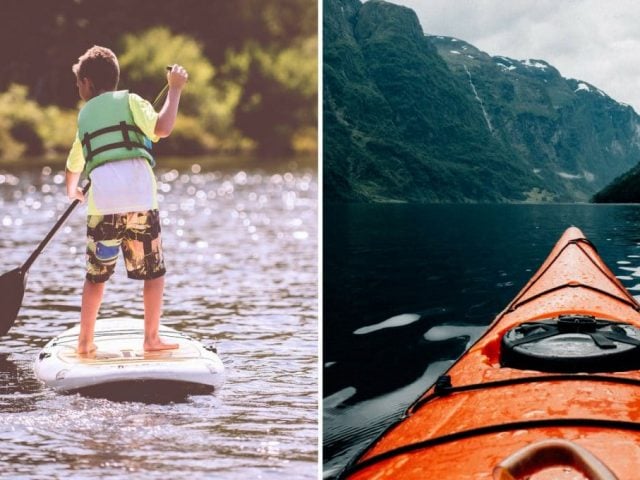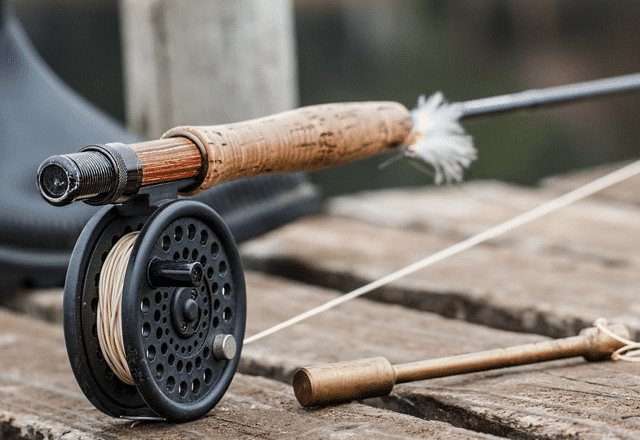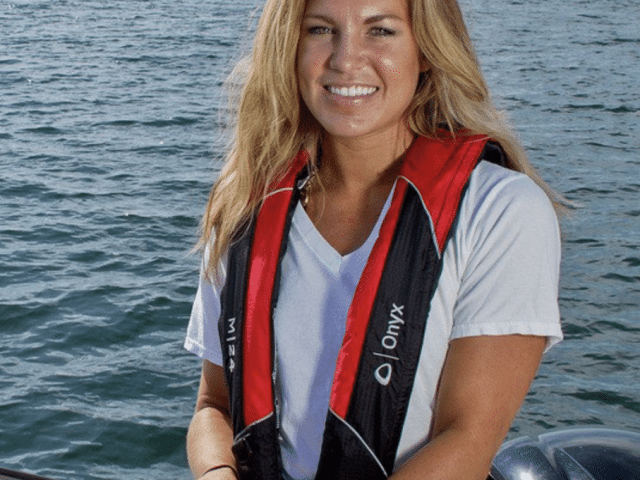Having the right gear aboard your boat can make all the difference in whether or not you and your crew have a fun long-distance trip. If you’re planning to head out on a long trip in your boat, you need to make sure you have the proper gear and supplies. Don’t leave shore without bringing the following 15 pieces of gear along with you.
1. VHF Marine Radio

During your long-distance boat trip, you may need to make radio contact with others including harbor patrol, the Coast Guard, and your fellow boaters.
A very high frequency (VHF) radio is the best choice for these communications within a distance of up to about five to 10 miles. You’ll want to familiarize yourself with the current protocols for using the VHF radio before you go.
2. Deck Shoes

Ordinary shoes do not provide enough traction on a moving, rocking boat. Everyone who plans to spend time on deck needs a pair of high-quality deck shoes.
Flip-flops are unacceptable because you’re likely to slip or trip while wearing them on deck. The same goes for any type of boot or shoe with a higher heel. Of course, if you plan to go ashore, it’s a good idea to pack appropriate street shoes too; just save them for wearing after you’ve safely docked the boat.
3. Personal Floatation Devices for Each Passenger

It goes without saying that you’ll need to have appropriate safety gear aboard your vessel. Personal flotation devices (PFDs)—also known as lifejackets—are an important inclusion in your gear when you take off on a long trip. Many states require boaters to have lifejackets or PFDs aboard, so be sure to familiarize yourself with the local laws in the areas you’ll be visiting. The US Coast Guard requires a child younger than 13 years old to actually wear their PFD while on the deck of a recreational vessel. Even if PFDs aren’t required in your state or other states you’ll be visiting, it’s certainly beneficial to have them handy.
4. Cord for Your Sunglasses

A cord to hold your sunglasses in place is a good investment. It’s all too easy to accidentally drop them overboard. A floating sunglasses cord is a great choice; if you do happen to drop it in the water, it will float, enabling you to retrieve your sunglasses without having to dive for them.
5. Floating Keychain

There’s only one thing worse than losing your keys, and that’s losing your keys in the water without a floatation keychain attached. Don’t let that happen to you. Spending a few bucks on a marine-friendly keychain can prevent major headaches on future boating adventures.
6. Binoculars

Binoculars are essential for safe navigation when you’re cruising into unfamiliar territory. They allow you to identify buoys and other markers more effectively. They’re also helpful for spotting hazards in your path.
Binoculars aren’t just for safety. It’s fun to have them aboard. If you add a birding guide to your gear, you and your crew can enjoy identifying the local marine birds in the areas you cruise to.
7. First Aid Kit

Conditions can get rough aboard a cruising vessel, and there’s always a possibility that someone could get hurt. A first aid kit is essential.
I’m personally a fan of stocking my own medic bag with supplies I know to be useful. I like to fill ours with waterproof bandages and natural remedies such as ginger for seasickness.
8. Fire Extinguishers

Boat fires are more common than you’d think. Hopefully one won’t happen to you on your trip. If it does, having fire extinguishers aboard can help you to deal with it in the safest and most efficient way possible.
Some states have specific requirements regarding fire extinguishers aboard recreational vessels. For example, California law dictates the number of Coast Guard approved fire extinguishers that must be aboard each vessel based on the type and length of the boat.
9. Strobe Light
If you fall in the water, how will your crew find you? It’ll be much easier if you have a strobe light handy to point them in the right direction. Clip the strobe light to your lifejacket or carry it in the pocket of your PFD or clothing to ensure it goes where you go.
10. GPS

GPS has made marine navigation much easier than it used to be. Before the widespread adoption of GPS technology, you had to understand how to navigate using a sextant, the heavenly bodies and charts if you wanted to take a long-distance boat trip.
It’s still a good idea to understand manual navigation techniques. My husband and I make it a rule to always bring a sextant aboard in case our GPS fails.
That said, it’s the GPS we reach for first for everyday navigational use. The GPS is convenient and reliable. We’re prone to making errors in celestial navigation, but that isn’t such an issue for us with GPS.
For most boaters undertaking long-distance trips, GPS is an essential technology to have aboard. Extra batteries are also a wise investment.
11. Paper Charts

What would you do if your GPS malfunctioned or your last set of batteries died? You’d probably grab your paper charts of the area and use those for navigation – assuming you brought them aboard to start with.
Make sure to get the latest version of each chart that’s available. Store your charts in waterproof tubes or containers and know how to read them before you set off.
12. Dry Bags

If you want to ensure that your gear will stay dry while you’re on board or rowing ashore, grab some dry bags. They’re an excellent place to stash your clothing and other items that shouldn’t get wet. Clear bags are a great choice because they allow you to see what’s inside each bag without having to open it up.
13. Cell Phone Case

Your cell phone is coming along for the trip, and you’ll want to make sure to protect it from water damage. A waterproof cell phone case is ideal for this purpose. Get one with a lanyard so you can keep your phone handy and dry.
14. Flares and a Flare Gun

If you’ll be boating in coastal waters, flares can help to satisfy the legal requirement to have visible distress signals aboard. Most flares have a shelf life of three years or less. Expired flares are not counted as legally usable visible distress signals, so you should ensure your flares are still current before you begin your trip.
Food, water, sunscreen, toiletries, clothing round out the list of items you’ll want to pack for a long-distance boat trip.
The day before my husband and I set sail to cross the Atlantic Ocean and the Mediterranean Sea, I spent my morning at Gander shopping for last-minute essentials. Some of these items were on my list. Do you have any additions? Leave a comment below.





